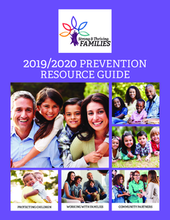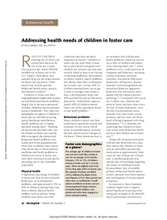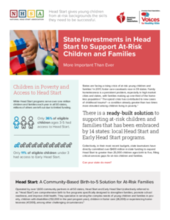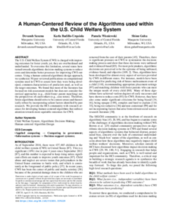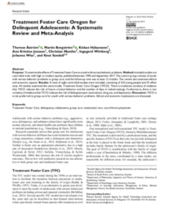Displaying 881 - 890 of 2503
This article describes a trauma-informed and integrated child welfare model, including information about its development, structure and organization, and programs. It concludes with a discussion of lessons learned and remaining challenges.
This Resource Guide offers support to community service providers as they work with parents, caregivers, and children to prevent child maltreatment and promote social and emotional well-being.
This article takes a look at physical and behavioral health problems in children and teens in foster care in the U.S. and offers information and tips for providing care to this vulnerable population.
This brief from Head Start provides an overview of state funding for Head Start, a collection of comprehensive birth to five programs in the U.S. specifically designed to strengthen families, promote school readiness, and improve child health.
Using a human-centered algorithmic design approach, the authors of this study synthesize 50 peer-reviewed publications on computational systems used in the U.S. Child Welfare System (CWS) to assess how they were being developed, common characteristics of predictors used, as well as the target outcomes.
This book prepares future child welfare professionals to tackle the complex and challenging work associated with responding to child maltreatment.
The authors of this study propose a strategy that increases system collaboration, leverages existing infrastructure, and adopts multi-source funding models that invest in prevention services to inoculate society against child abuse and neglect (CAN).
In this opinion piece for the San Francisco Chronicle, Juliana E. Morris, M.D., EdM, Monica Hahn, M.D., MPH, MS, and Eva Raphael M.D., MPH - family doctors at the Family Health Center of San Francisco General Hospital and UCSF - describe the health impacts of family separations under detention.
This article from the Washington Post tells the story of Geard Mitchell, a foster youth who spent part of his childhood in a juvenile detention center.
The aim of this paper is to examine the effects of Treatment Foster Care on youth with serious behavior problems.

